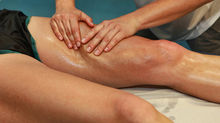What is pelvic floor dysfunction? Why should I see a Women's Health Physio?
- The Studio Team
- Mar 18, 2019
- 3 min read
Pelvic floor dysfunction is an umbrella term for the numerous disorders that occur when the pelvic floor muscles and ligaments are weakened, stretched, damaged or firing incorrectly. Symptoms of such dysfunction include pain in the pelvic area, pain during sex (dyspareunia), incontinence, voiding dysfunctions and prolapse. While many of these conditions can be related to pregnancy or childbirth, this is not always the case.
Tell me more about conditions related to pelvic floor dysfunction...
- Pelvic pain is constant or intermittent pain that is experienced between the belly button and the top of the legs. It affects up to 25% of the population and can have a variety of different causes.
- Vaginismus is classified as a ‘Genito-pelvic pain penetration disorder’ whereby the woman may experience pain and/or blockage with penetration. This condition may be caused by passive tightness of the pelvic floor muscles and has shown to have significant improvements with Physiotherapy interventions.
- Incontinence is the lack of voluntary control over urination or defecation. Voiding dysfunctions include: incomplete bladder emptying, significant hesitation before urinating, a weak urine stream or constant dribbling of urine, as well as strong/frequent bladder urges that are difficult to defer. Many of these issues can be resolved through advice, education, lifestyle changes and in some cases a pelvic floor strengthening programme or manual therapy.
- Prolapse is defined as ‘a slipping forward or down of an organ of the body’. These most commonly occur in the organs of the pelvic cavity (bladder, uterus or bowel) and are often associated with feelings of pressure/heaviness in the vaginal area, voiding dysfunctions or discomfort. There are different grades of severity, many of which can be managed by a Women’s Health Physiotherapist.
Seek help!
As you can imagine, such conditions can bring about feelings of embarrassment and are often a sensitive/distressing issue for women. Unfortunately, in many cases women can be slow to seek treatment from health care professionals often unaware that this is available to them or vital for their long term pelvic health. This is where the Women’s Health Physiotherapist comes in. Such Physio's are highly trained in this field and have many strategies up their sleeves to properly assess and treat women providing often at times life changing symptomatic relief.
It is important to understand that a weakness in your pelvic floor muscles is not the sole cause of the conditions outlined above, therefore your stock standard 'kegal' exercises do not apply to everyone. There are a number of potential causes for pelvic floor dysfunction and your Women’s Health Physiotherapist will be able to identify and treat the one(s) specific to you.
What will an appointment with a Women's Health Physio look like?
A consultation with a Women’s Health Physiotherapist will consist of an in-depth subjective history where you will be given an opportunity to openly discuss the symptoms which are affecting your day to day life. Following this, an assessment will be performed to determine the cause of the issue. At The Studio an internal exam is optional (if booking in to see Sarah) for a thorough assessment of the pelvic floor. Externally your core and pelvic floor will be assessed with use of real time ultrasound (the fancy machine used to look at babies as they grow in utero - however in this instance used to assess muscle activation patterns). Appropriate advice and education will be provided and, where necessary, patient-specific strengthening programmes, stretches or relaxation techniques.
Women’s Health Physiotherapists are passionate about working with clients experiencing these conditions and can make large scale improvements in the quality of life of women experiencing them. All our Studio Physio's are trained in Women's Health management, in particular Pre and Post natal care. For complex pelvic floor concerns book in to see Sarah Mon - Sat.






























Comments